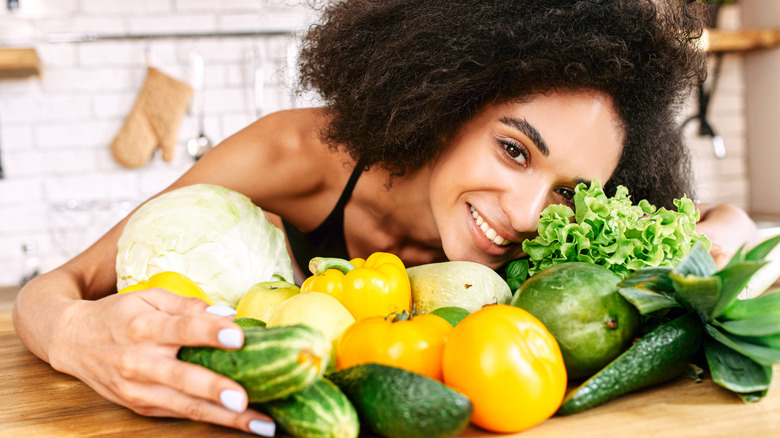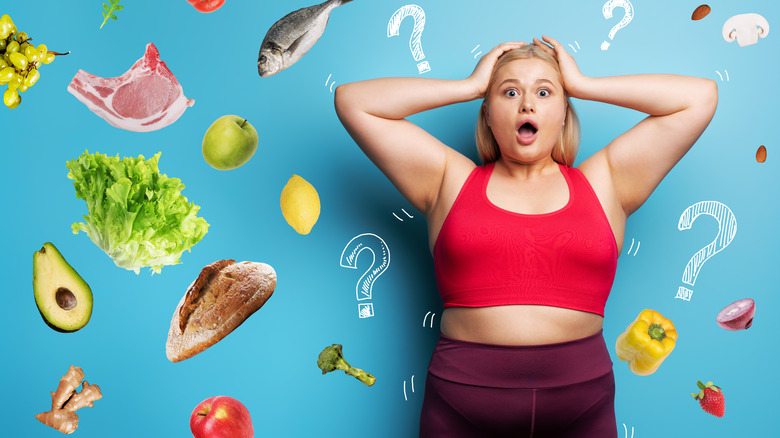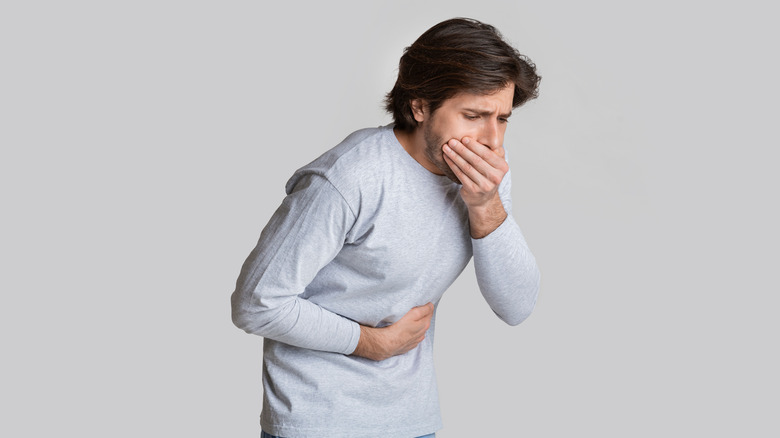The Ultimate Beginner's Guide To A Keto Diet
The ketogenic diet, aka keto, is a diet that works by severely limiting carb consumption while focusing on eating lots of fats and moderate amounts of protein. According to Healthline, the keto diet spurs ketone production and throws the body into ketosis, a state where the body burns fat as its primary source of energy. As Eating Well notes, the keto diet was first introduced in the 1920s to control seizures in children with epilepsy. Today, researchers propose that following a keto diet may reduce symptoms of various other medical conditions, including cancer, Alzheimer's disease, multiple sclerosis, and cardiovascular disease. However, keto is primarily known for its weight-loss benefits. Here is the ultimate beginner's guide to a keto diet.
Normally, the body likes to prioritize the burning of carbohydrates for energy, says the Metabolic Research Center. The carbs we eat are converted to glucose (sugar) in the body and then burned for energy (via UC Berkeley). If the body can't use all the sugars for energy, they have to be stored somewhere, so the excess glucose gets converted into fatty acids and stored as fat in the body. This is where a keto diet comes in: Men's Journal explains that when you feed your body fewer carbs, this encourages it to access fat cells for energy because it's trying to preserve its depleted glucose reserves, helping burn excess fat quickly.
What should you eat on a keto diet?
So, what should you eat on a keto diet? For people wanting to lose weight, the whole point of the diet is to keep your body burning fat. To that end, Harvard T.H. Chan School of Public Health advises that you should get 70-80% of your daily caloric intake from high-fat foods like fatty meats, butter, nuts, and avocados. After that, 10-20% of your calories should come from protein — including bacon, sausage, and fish like salmon — plus 5-10% from carbohydrates.
On the keto diet, simple carbs like sugar, soda, white bread, and pasta are out. But some unexpected foods to avoid include most fruits and starchy vegetables like root vegetables. Everybody is different, and carb limits vary according to size and body type, ranging between 50 and 20 grams per day. As with most diets, keto-friendly foods include loads of leafy greens and veggies that grow above the ground, like broccoli, lettuces, cauliflower, peppers, asparagus, and cucumbers.
Consuming more than your carb limit can immediately throw your body out of ketosis, says Trifecta. That said, if you're using the keto diet for weight loss, don't worry about indulging in an occasional cheat day. A single pasta dinner or slice of cake won't ruin your progress if you keep calories low and get back on track quickly. However, a cheat day may be more detrimental to those following a keto diet for health reasons other than weight loss.
Keto side effects
There are some side effects associated with the keto diet. Intermountain Healthcare explains that because ketosis changes body chemistry, these changes can induce temporary side effects that feel like the flu, including nausea, brain fog, dizziness, diarrhea, stomach pain, and irritability. Keto flu symptoms generally begin within the first couple of days on keto and typically last less than a week. However, some people may experience symptoms for up to a month, while others may never feel them. Take an electrolyte supplement, drink lots of water, and get plenty of rest to minimize symptoms.
Some people notice that their breath smells foul after starting keto; this happens when the body expels excess ketones through the breath. Keto breath is more noticeable at first and usually goes away after a few weeks, assures Medical News Today. Drinking plenty of water can help move the ketones into your urine instead, as well as flushing out any bacteria from your mouth. You can also slightly increase your carbohydrate intake to reduce ketones in the breath, or brush your teeth more and use mints.
Another potential issue that may crop up with keto: a lack of fiber-rich grains and fruit in your diet means constipation can be a problem, according to Live Science. Eat more fiber-rich vegetables or take a fiber supplement to avoid getting backed up.



